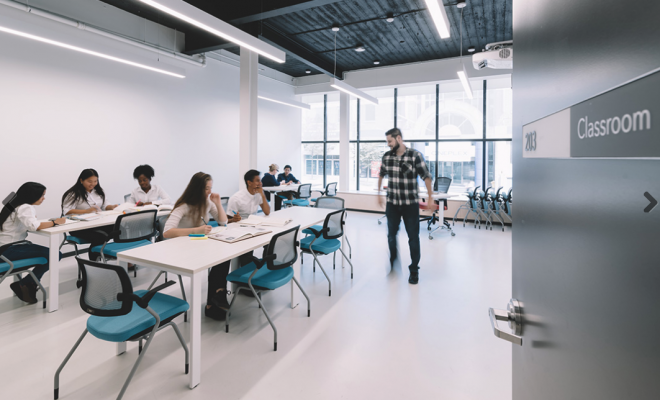How to Help Students Overcome Their Fear of Failure

We’ve all had him (or her) in our classroom. He sits quietly during class discussions never raising a hand or offering a thought. She looks back at you wide-eyed and silent after you ask her a question. He passively participates in group work by allowing the group to carry the heavy lifting of ideas and plans.
Fear of making a mistake in the classroom is a HUGE deal, but so rarely talked about by educators. The impact it can have on learning in your classroom can’t be understated. A child who is fearful of making a mistake is missing out on crucial learning experiences. Why?
Simply put, when fear takes over it consumes a considerable amount of brain “bandwidth.” You know that feeling! When panic and anxiety take over it is difficult to think about anything else.
Fear, panic, and anxiety seriously interfere with:
- Memory
- Concentration
- Attention
Additionally, plain and simple, it zaps their energy. Being fearful all day is exhausting. An exhausted student is certainly not in his zone of proximal development.
The good news about the 800-pound gorilla – you (and your students) can tackle him. Here’s how:
Help students become aware of feelings of anxiety. A lot of students don’t recognize when their anxiety and fear start to build-up until it has become overwhelming. Teach students to pay attention to how their body feels and what their mind is saying to them when they start to feel the fear creep up. Teach strategies to implement such as breathing techniques, stretching, taking a short walk, or relaxation techniques.
Place value on mistakes (because there really is!). Put emphasis on the process they go through rather than the outcome – the effort NOT the ability. Celebrate mistakes as an opportunity to figure out what went wrong and learn together. What does this look like in the classroom? You may ask students to solve a math problem. Ask students who arrived at an incorrect answer to walk the class through their process, as a class works together to figure out where the student went wrong. Remind students often that mistakes are SUPPOSED to happen. They are an important part of learning.
Build a Nurturing Environment. Know your students. Invest time and emotion into knowing their stories and what makes them tick. Model self-compassion (make purposeful mistakes on occasion if you need to!). Explicitly teach students how to meet mistakes head-on, what working in a group looks, sounds and feels like, helping a partner identify a mistake. Make the following questions a part of your daily class discussions:
- What was one thing that was really hard to figure out today?
- What strategy did you use to overcome feeling fearful of making a mistake?
- What did a mistake you made today teach you?
Your title might say math teacher, but these life skills are one of the most important things you will teach in your classroom this year. Mistakes matter (in a good way).






